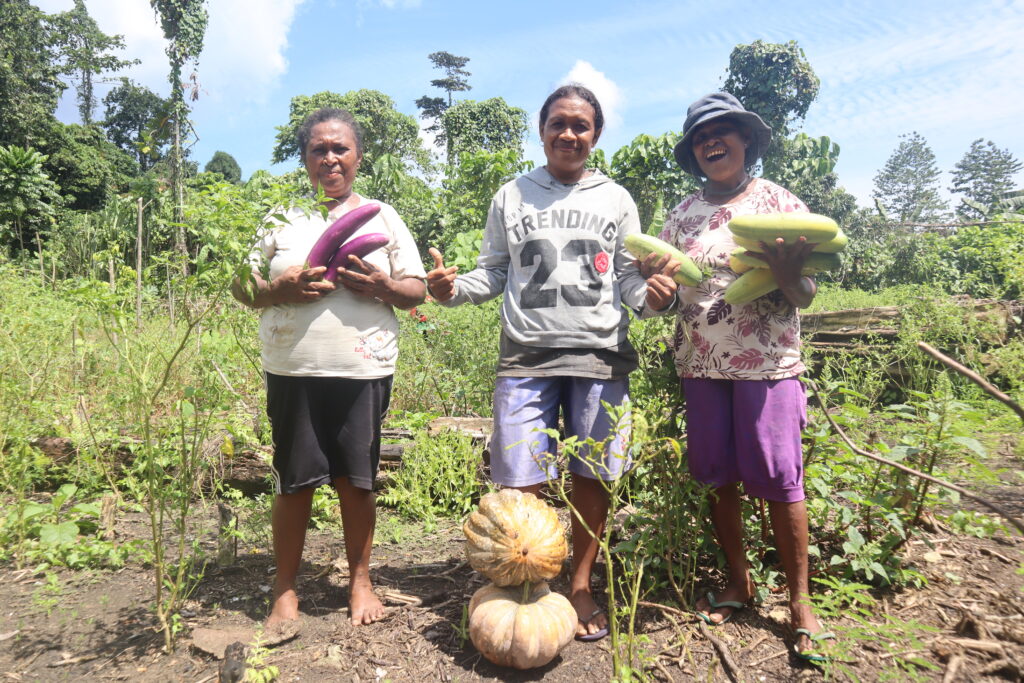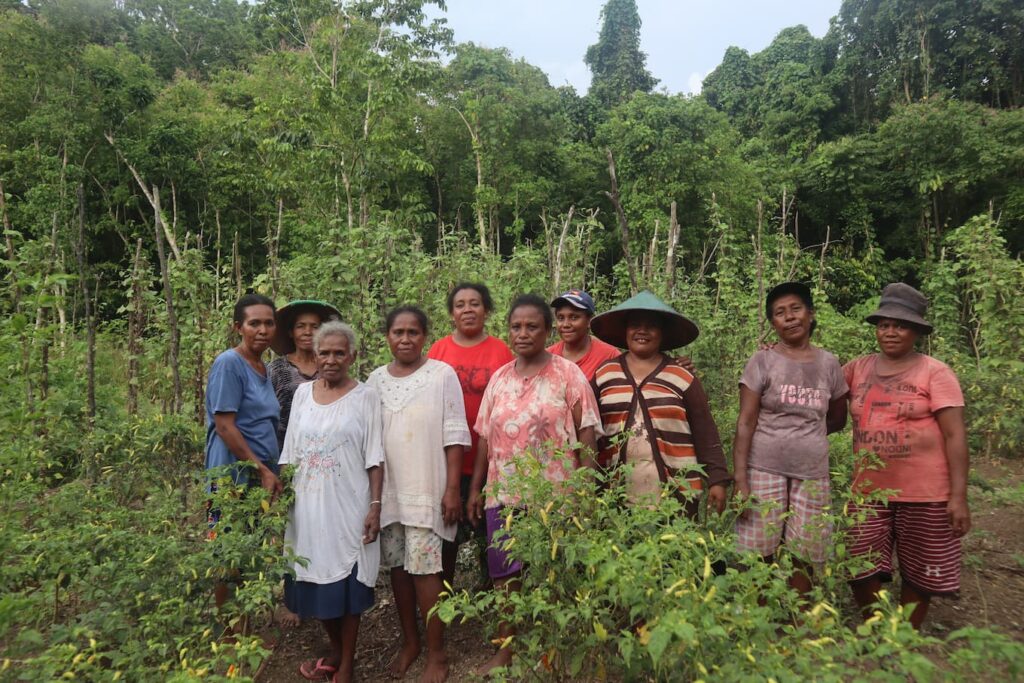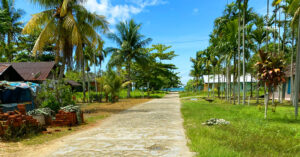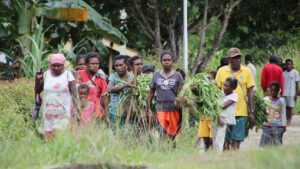
Women community from South Arefi, Raja Ampat, Southwest Papua in the fields they cultivate. (EcoNusa Foundation/Nur Alfiyah)
Six women chatting and joking on a boat in the waters of North Batanta, Raja Ampat, Southwest Papua. Their boat then turned and entered the mangrove forest in the Waringkabom area, North Batanta. Seeing its name, it is said that this area was once managed by widows.
“War means water, ingkabom means widow. Previously, the women who gardened here were widows, and men were not allowed to enter this area,” said Magrit Key, one of the women on the boat, Wednesday, April 12, 2023.
She added, “But not anymore. Now everyone can do farming here. We also have our own farm here.”
After going through the mangrove forest for about two minutes, the women continued their journey on foot through the farm and forest areas. After around 15 minutes of walking, the farms of these women from South Arefi Village welcomed us.
Read Also: An Elementary School Graduate Became a Homestay Owner in Raja Ampat
In this half the size of a football field farm, women communities grow chillies, pumpkins, eggplants, tomatoes and cucumbers. All their plants have started to bear fruit. There were three large pumpkins, some cucumbers and eggplants that they had harvested that day. “Usually we sell our crops,” said mama Maryanke Kapisa.
The six women are members of the South Arefi agricultural group. Their group was formed in May 2022, when they attended training in organic farming initiated by the EcoNusa Foundation. There were a total 2 women farmers groups in South Arefi. In the next village, East Arefi Village, three agricultural groups consisting of women were also formed. These five agricultural women groups are still active to this date.
In the training on organic farming cultivation, the women communities learned to cultivate the land, seeds selections, produced organic fertilizers, and organic pesticides. All materials provided on the training were based on the needs from local communities.

People in South Arefi and East Arefi could only consume vegetables that they purchased in Waisai City, the capital city of Raja Ampat, with a 2 hours ride by longboat. Alternatively, they cook leaves from the surrounding plants, such as papaya leaves, gedi leaves, and cassava leaves. “We only eat vegetables from the surrounding gardens or when we go to the town,” said Mama Ruth Rumfakar from East Arefi.
By farming, the women of farming group members are able to cook vegetables more often, so they can meet their family’s nutritional needs. Other households who are not involved in agriculture groups can buy vegetables from them.
After the training, they planted chillies, tomatoes, eggplants, kales, and mustard greens. Within 2 months, they can harvest their farm and sell the crops to their own and neighboring villages.
Read Also: Wersar and Tapiri Communities Learned Semi Modern Farming in Village School
The money earned is used for plantation management needs, such as buying fuel oil for transportation to the farm. The rest is kept by the group treasurer. “From the harvest, our group gets hundreds of thousands of rupiah,” said Fera Rumfakar from the East Arefi group.
To this date, their farms can be harvested multiple times. To enhance their farm, other vegetables were also planted, such as cucumbers, long beans, and green beans. 3 sacks of cucumbers, 2 sacks of eggplants, 2 sacks of long beans, and 2 small sacks of green beans can be harvested during high seasons. “The harvest is satisfactory, we are happy,” said Mama Margarit.
However, they were not able to always gain maximum harvesting. Some plants weren’t able to be harvested due to insects, such as kale and mustard greens. Their eggplant plants were also got attacked by fleas. “We hope there will be training and assistance from the agriculture service,” said Mama Fera.
Editor: Swiny Adestika







